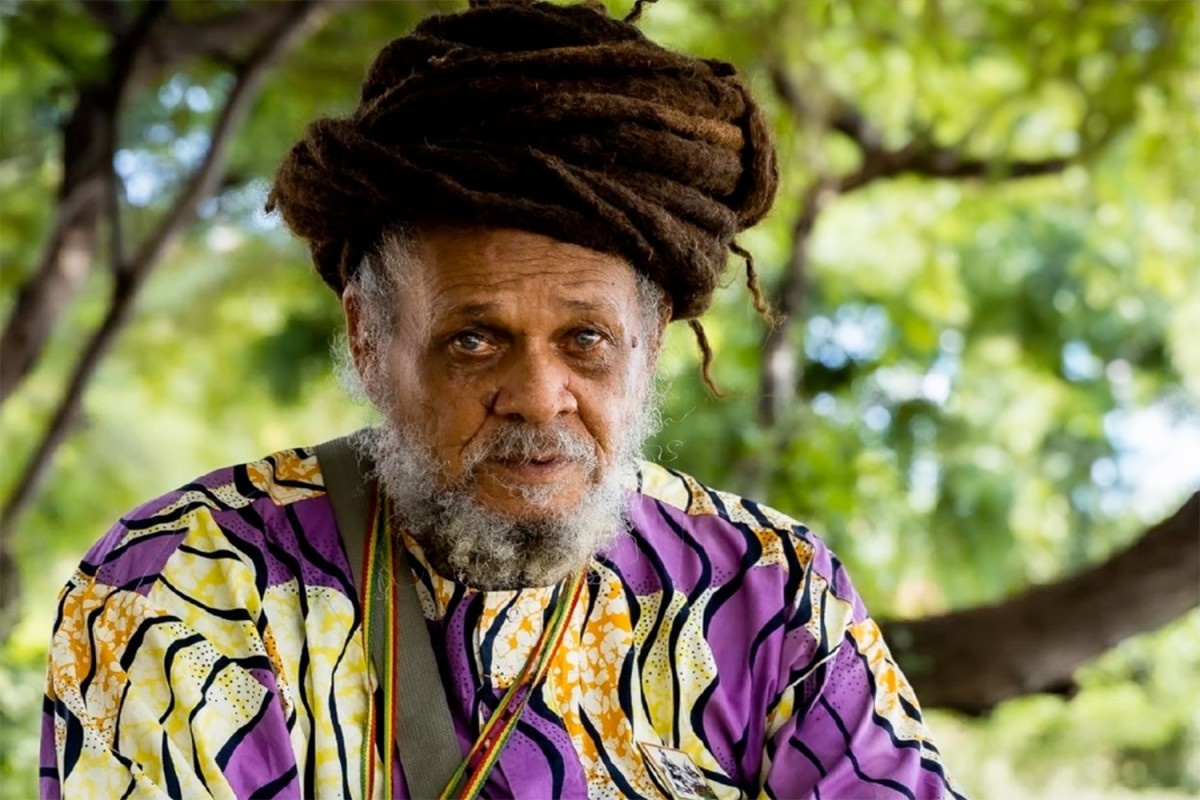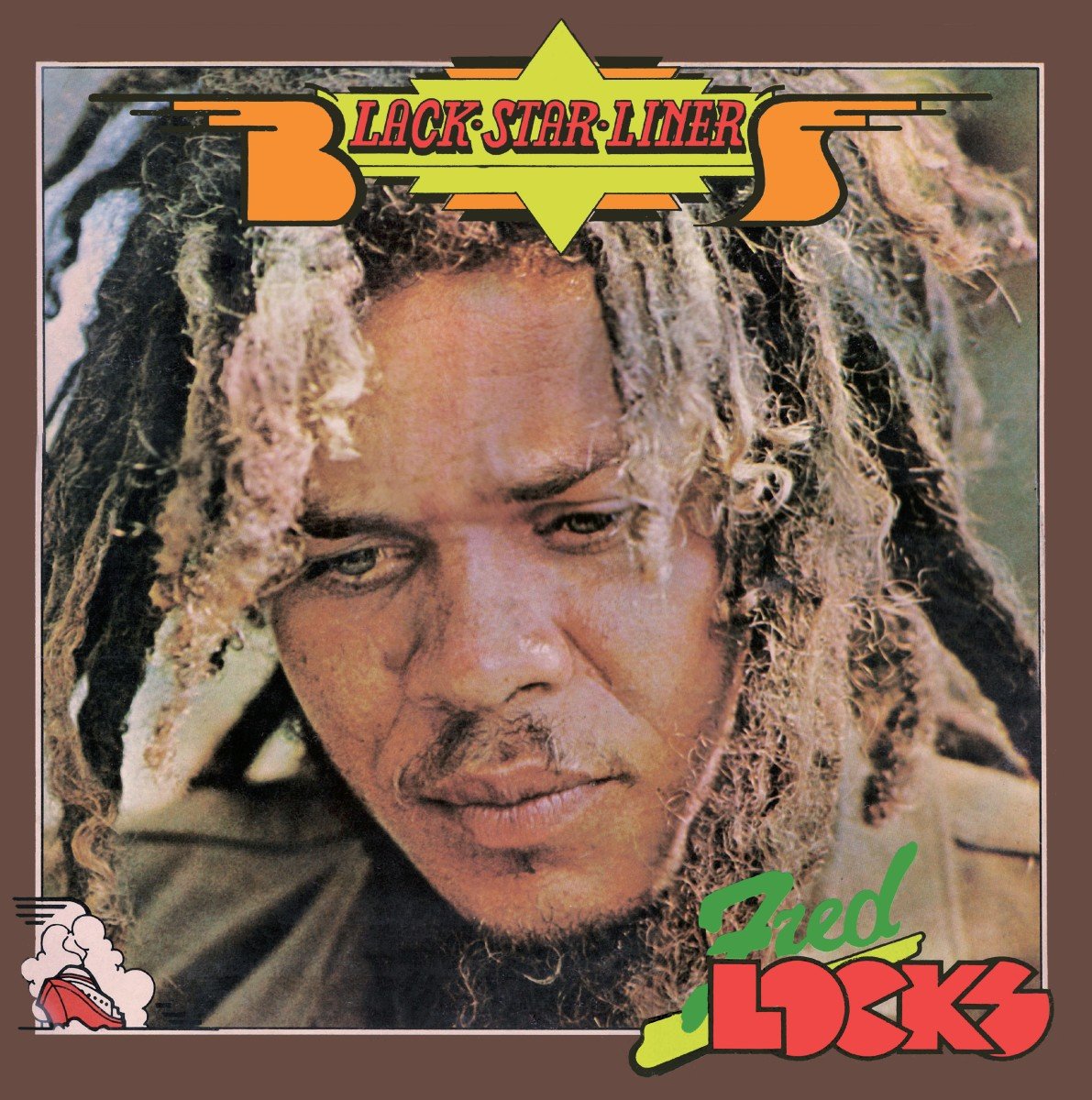The Story Behind The Song: Fred Locks’ Repatriation Anthem ‘Black Star Liner’

Fred Locks‘ Black Star Liner was more than just a catchy roots Reggae tune. It was a potent anthem about the Garveyite yearning for repatriation, which resonated with a new generation of Rastafarian youth in Jamaica and the UK when it was released in 1975.
Born Stafford Elliott on June 7, 1950, the 73-year-old singer recalled the song’s genesis in 1968, a time when he first accepted Rastafarianism while a member of the harmony trio The Lyrics (with Danny Campbell and Albert Tomlinson). He later adopted the solo stage name “Fred Locks” as his dreadlocks grew to a formidable length. “Mi never start locks until early 69 so we [The Lyrics] used to always a sing love songs or some Bob Marley songs and a write love songs too,” Locks said during a recent interview with DancehallMag.
Black Star Liner marked a departure in tone and content from his earlier work. The song was co-written with Owen Goode, a fellow Rastafarian whom he had met while living on the beach at Harbour View. Locks said Goode’s encouragement led him to embrace his newfound Rastafarian faith more deeply and to craft the iconic chorus that would define the song.
“Owen Goode was a bredda who come live inna the area weh me grow up (Harbour View). Through rasta vibes we meet pon the beach and smoke herbs, you know,” Locks said. “Him gimme the idea fi shore up mi faith cause it was 1968 and I got more into my Rastafari faith knowing that a this mi want. Him mention that now as a chorus and a say work wid that my youth.”
The song’s title directly references Marcus Garvey’s Black Star Line steamship company, a pivotal part of his Back-to-Africa movement. Locks cited Garvey’s teachings and his own deep dive into the Jamaican hero’s writings as major inspirations for the song.
“…Marcus Garvey popularize Back-to-Africa, where a black king should be crowned. Because of [that] and a man (Goode) a gimme something fi write bout Black Star Line, that is what inspired me to finish writing the song, so when him say hear this a Marcus Garvey inno that was what lead me to go home and read a book, ‘The Philosophy and Opinions of Marcus Garvey.’ The inspiration came from that for me to write, ‘I can see them coming,’ because of my Rastafarian faith.”
While written in 1968, Locks said Black Star Liner wasn’t performed live until 1973 at the Harembee Theater in 7 Miles, Bull Bay. It was eventually recorded in 1975 for producer Hugh ‘Boothie’ Boothe.
The song’s success in Jamaica and England led to a full-fledged 1976 album of the same name, featuring other tracks like Voice Of Redemption, Time to Change, and True Rastaman. “It was released in Jamaica and the single took off in England and then a guy in England was interested and we did an album of the same name. So, it was not released in England as a single; it just took off up there. It was released by [British label] Vulcan who put it out with all the things you see,” he shared.
Locks said that he and Goode lost touch after the latter faced a personal tragedy, only to reunite years later, with Goode learning of his pivotal role in the song’s creation.
“Years later mi deh America and a man a say mi wah carry you someweh inno and mi ask him which part but him never tell me. Mi go wid him still because mi know him never have no intention fi do mi nothing,” he recalled.
“We go a one house and mi see a dred, the fuss me a see him, him name Tikki. But when mi reach inna the house and look ina the kitchen mi see Owen and me say Owen, a years mi no see dem man yaw and mi tell dem say a him inspire mi fi sing Black Star Liner and him gimme the chorus and the word dem.”
Locks also clarified that the song’s final verse about Garvey was actually written earlier than 1975, contrary to some accounts. “I didn’t finish writing Black Star Liner in the studio and I can recollect, they wanted me to do a new verse because mi did have a verse already, ‘Marcus Garvey told us’ so me repeat the first verse before mi sing the last verse so I don’t know where dem get dem history from,” he said.
“Mi did have three verses for my song and then mi put in the last verse about Marcus Garvey. But I had written the whole complete song, the proof would have been when I sang it in 1973 in Harembee Theater.”
On February 9, VP Records made the 1976 LP available again in its original stereo mix, “lovingly remastered and restored, an upgrade on the pressings available in recent years.”
“In addition, the cover art has been colour-corrected for an accurate reproduction of the original. Extensive liner notes by Noel Hawksand a rare photo by Michael Morgan on the printed inner sleeve give the release additional depth,” a release added.

